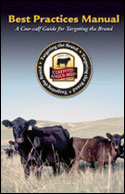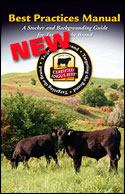 Prevention is the Best Defense Against Rabies
Prevention is the Best Defense Against Rabies
State veterinarians offer tips on symptoms, prevention.
The number of rabies cases reported in Arkansas through April 28 exceeded the average annual total, according to figures from the Arkansas Department of Health. Rabies is a viral disease that is most often transmitted through the bite of a wild infected animal such as a skunk, bat, fox or raccoon.
Not all animals afflicted with rabies exhibit the slobbering, aggressive symptoms shown in movies, said Angela Dement, extension assistant for veterinary medicine, Texas Cooperative Extension (TCE). Many times an animal with rabies will become withdrawn and shy, she said. In either case, the affected animal will suffer a progressive paralysis, and may exhibit difficulty swallowing early on. Eventually, the affected animal will be unable to eat or drink. After the onset of symptoms, the disease is always fatal.
Because of their curious nature, cattle are often the most frequently infected domestic animal. In cattle, rabies can look a lot like other conditions, so a proper diagnosis is often delayed. Former West Virginia State Veterinarian Joe Starcher said cattle infected with rabies can seem to have respiratory problems, but it is actually slobbering due to the paralysis of the muscles in their throats. He said affected cattle might look as if they have something lodged in their mouth.
Other rabies symptoms in cattle can include restlessness, aggression, repeated bellowing and slobbering, or cattle may act depressed or sleepy. They may show weakness, particularly in their hind legs, and appear to be choking. Veterinarian Dee Whittier of the Virginia-Maryland Regional College of Veterinary Medicine said producers should not put their hands in the mouths of animals to see if something is stuck in their throats, as this puts them at risk of infection.
"The disease, if untreated, is virtually 100% fatal," said Dustan Clark, extension veterinarian for the University of Arkansas Division of Agriculture. "Rabies in people is very rare in the U.S., which averages one to two rabies deaths a year. Worldwide, as many as 55,000 people die from rabies each year, usually in countries that do not have vaccination programs for dogs or cats."
Infection prevention is the most important tactic when it comes to rabies. Clark offered these suggestions:
- Teach children not to approach or touch wild animals or dogs and cats they do not know.
- Don't keep wild animals as pets.
- Report any animal bite to your physician immediately.
- Have your dogs and cats vaccinated against rabies by your local veterinarian or at a rabies clinic conducted by the county health unit environmental health specialist and a veterinarian.
- If you see a wild animal acting strangely, such as a skunk or bat out during the daylight hours, do not approach it.
- Report the location of the animal and the type of animal to your local animal control office, the sheriff's department, or your local county health unit environmental health specialist.
- Make sure your own animals, such as dogs and cats, are confined to prevent them from being bitten and that they are current in their vaccination against rabies.
- If you kill a wild animal that is acting strangely, do not shoot it in the head. Call your local veterinarian, animal control officer, or county health unit for instructions for getting the animal checked for rabies. There is no test for a live animal.
Most state laws require all dogs and cats to be vaccinated against rabies. In many states, the vaccination is not considered to be a legal vaccination if you obtain the vaccine and give it to your own animals. The vaccination itself or the vaccine must be obtained from a licensed veterinarian to be legal, depending on the state statute. If you have questions regarding animal vaccination rules in your state, contact your veterinarian.
Editor's Note: This article was adapted from a May 5 University of Arkansas Extension release and August 2007 and October 2008 Angus Journal articles. Use our back issue search at http://www.angusjournal.com/aj_backissues.html to find the original articles. Just type the word rabies into the keyword search and click the search button below the entry field.
[Click here to go to the top of the page.]














